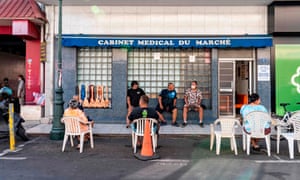In the UK, close to half a million redundancies are likely to be announced in the autumn, although the number could end up exceeding 700,000, according to a study that lays bare the scale of the Covid-19 jobs crisis facing the UK.
These job cuts are on top of 240,000 redundancies officially recorded by the government up until June. That means the total redundancy figure for 2020 could top one million.
In a bleak warning, the Institute for Employment Studies (IES), which published the analysis, said the number of jobs likely to be lost “will almost certainly exceed anything we have experienced in at least a generation” – far exceeding the peak reached in the last downturn just over a decade ago and the highest since at least 1995.
With the autumn budget weeks away, it is calling for urgent measures to support those affected, stimulate employment growth and provide targeted help to viable firms:
In Australia, the state of Queensland’s chief health officer, Dr Jeannette Young, says death threats and extreme trolling have taken an “enormous toll”, with a permanent police escort now assigned to the officer.
The state’s leadership, including Young, have come under intense scrutiny in recent days over Queensland’s hardline approach to border control in response to the coronavirus, which has prevented multiple family members from attending loved one’s funerals.
The Queensland AMA president, Chris Perry, told the Today show on Monday that Young had been receiving death threats. He said she now required police guards at her home and officers “who go with her everywhere” for her safety.
Nothing short of force majeure will prevent Yoshihide Suga from becoming Japan’s prime minister when the ruling Liberal Democratic party (LDP) elects a leader to replace Shinzo Abe this week.
As chief cabinet secretary for almost eight years, Suga has acted as the administration’s de facto second-in-command, batting away tricky questions at twice-daily press briefings, advising Abe on policy and reining in Japan’s recalcitrant bureaucracy.
Suga has emerged as the clear favourite to replace Abe, who is resigning on health grounds, since securing the support of key LDP factions. After what observers predict will be a comfortable victory over his rivals, the party’s policy chief, Fumio Kishida, and Shigeru Ishiba, a former defence minister, Suga is practically assured of being approved as prime minister in the lower house of parliament on Wednesday.
Suga’s status as a relative outsider could serve him well as he attempts to steer Japan out of a prolonged recession worsened by the coronavirus pandemic, according to Tobias Harris, a Japan expert at Teneo Intelligence in Washington and the author of a new book on Abe:
French Polynesia has recorded another 67 Covid-19 cases in the past 24 hours, raising its total to 1,020.
Of those cases, 958 have been detected since August, when the government and the French High Commission re-opened borders and abolished quarantine restrictions for tourists.
On 9 August, there were just 69 infections. Since that date – five weeks ago – the number of confirmed cases has increased exponentially, up nearly 1500%.

The infections in French Polynesia have only caused two fatalities, a couple in their 80s in the capital Papeete. The majority of infections are on the island of Tahiti, but others are in Mo’orea and Hao.
A small rally in Papeete over the weekend protested a new mask-wearing mandate, introduced to try to slow the current outbreak.
Masks are compulsory in enclosed public places and on public transport while school students older than 11 must also wear them.
Still in the UK, tens of thousands of pubs, bars, nightclubs and gig venues will not survive increased coronavirus-prevention measures, such as local lockdowns and evening curfews, unless they receive fresh state support, the UK government has been warned.
One in four of the 115,000 licensed premises in Britain still had not reopened by the end of August after restrictions were imposed to contain Covid-19, according to data from the analysis firm CGA and AlixPartners.
With concern growing about rising infection rates, a ban on gatherings of more than six people comes into effect across England on Monday, while Scotland and Wales have their own amended restrictions:
Police chiefs have urged the public in England to take personal responsibility and observe the new “rule of six” regulations following a weekend rife with illegal gatherings.
Overall crime dropped dramatically during the coronavirus lockdown, when police were handed powers to enforce regulations designed to limit the spread of the disease. But Martin Hewitt, the chair of the National Police Chiefs’ Council, said demand for the police was now close to that before the outbreak of the pandemic and urged the public to do their part by limiting gatherings indoors and outdoors to six people:

















